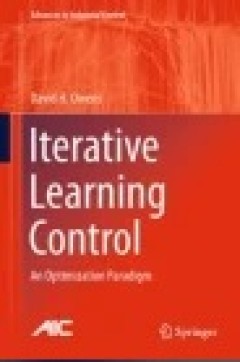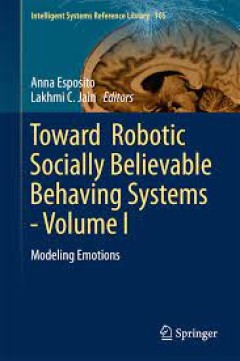Filter by

Evolutionary Humanoid Robotics
This book examines how two distinct strands of research on autonomous robots, evolutionary robotics and humanoid robot research, are converging. The book will be valuable for researchers and postgraduate students working in the areas of evolutionary robotics and bio-inspired computing.
- Edition
- -
- ISBN/ISSN
- 978-3-662-44599-0
- Collation
- 7 b/w illustrations, 17 illustrations in colour
- Series Title
- -
- Call Number
- -

Iterative Learning Control: An Optimization Paradigm
This book develops a coherent and quite general theoretical approach to algorithm design for iterative learning control based on the use of operator representations and quadratic optimization concepts including the related ideas of inverse model control and gradient-based design. Using detailed examples taken from linear, discrete and continuous-time systems, the author gives the reader acce…
- Edition
- -
- ISBN/ISSN
- 978-1-4471-6772-3
- Collation
- -
- Series Title
- -
- Call Number
- -

Toward Robotic Socially Believable Behaving Systems - Volume I
This volume is a collection of research studies on the modeling of emotions in complex autonomous systems. Several experts in the field are reporting their efforts and reviewing the literature in order to shed lights on how the processes of coding and decoding emotional states took place in humans, which are the physiological, physical, and psychological variables involved, invent new mathemati…
- Edition
- 1
- ISBN/ISSN
- 978-3-319-31055-8
- Collation
- XVI, 240
- Series Title
- Intelligent Systems Reference Library
- Call Number
- -

Introduction to Evolutionary Computing
The overall structure of this new edition is three-tier: Part I presents the basics, Part II is concerned with methodological issues, and Part III discusses advanced topics. In the second edition the authors have reorganized the material to focus on problems, how to represent them, and then how to choose and design algorithms for different representations. They also added a chapter on problems,…
- Edition
- -
- ISBN/ISSN
- 978-3-662-44874-8
- Collation
- -
- Series Title
- -
- Call Number
- -

Emerging Therapies in Neurorehabilitation II
This book reports on the latest technological and clinical advances in the field of neurorehabilitation. It is, however, much more than a conventional survey of the state-of-the-art in neurorehabilitation technologies and therapies. It was written on the basis of a week of lively discussions between PhD students and leading research experts during the Summer School on Neurorehabilitation (SSNR2…
- Edition
- -
- ISBN/ISSN
- 978-3-319-24901-8
- Collation
- 19 b/w illustrations, 36 illustrations in colour
- Series Title
- -
- Call Number
- -
 Computer Science, Information & General Works
Computer Science, Information & General Works  Philosophy & Psychology
Philosophy & Psychology  Religion
Religion  Social Sciences
Social Sciences  Language
Language  Pure Science
Pure Science  Applied Sciences
Applied Sciences  Art & Recreation
Art & Recreation  Literature
Literature  History & Geography
History & Geography